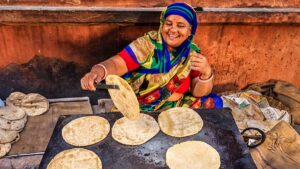Holista has developed a healthy, low-carb noodle to fight obesity

Pic: d3sign / Moment via Getty Images
Noodles such as Udon, vermicelli, soba and ramen are so popular they account for more than half the world’s consumption of wheat.
More than 100 billion serves of instant noodles alone are consumed every year — though the dish has never been regarded as healthy.
But food tech Holista CollTech (ASX:HCT) hopes to change that with a breakthrough low-carbohydrate noodle formula that boasts a glycaemic index (GI) of 38 — almost half that of a standard noodle.
Low-GI food is classed at 55 or less. Medium GI is 56 to 69, while high GI foods are 70 or greater.
Carbohydrates with a low GI value are more slowly digested, usually causing a slower rise in blood glucose and insulin levels.
The news pushed Holista’s share price up 13 per cent 10 13c on Friday — its highest level since June.
Chief excecutive Dr Rajen Manicka said the noodle, made from barley, fenugreek, lentils and okra, would help to tackle the problem of obesity.
“When we are talking about diabetes, heart disease or obesity – the common denominator is food,” Dr Manicka told Stockhead.
“The typical noodle has a GI score of 65-70 but we offer a GI of just 38. The implications for the noodle market and for the global battle against obesity could be significant.”

A food’s glycaemic index is based on the rate its carbohydrates raise blood sugar levels. The lower the better.
Scores of 54 get you a low GI certification, which puts Hollista’s noodle well well within the healthy range.
Dr Manicka said the new product could replace conventional three minute noodles without compromising taste, texture or quality.
In the US alone, the noodle market has an estimated value of $US344 million, but servings of instant noodles have declined as consumers continue to reduce the amount of processed foods, especially carbohydrates, from their diet.
Noodles have remained sheltered from much of the low-GI and health-food alterations of its western wheat counterpart, bread.
“There has been no innovation in noodles for the past 100 years, we think there is great potential that can be reached at smaller cost margins to the likes of gluten free bread,” Dr Manicka said.
The product has been developed at Holista’s Buffalo-based subsidiary and will initially be marketed to health-conscious customers in the US.
UNLOCK INSIGHTS
Discover the untold stories of emerging ASX stocks.
Daily news and expert analysis, it's free to subscribe.
By proceeding, you confirm you understand that we handle personal information in accordance with our Privacy Policy.








